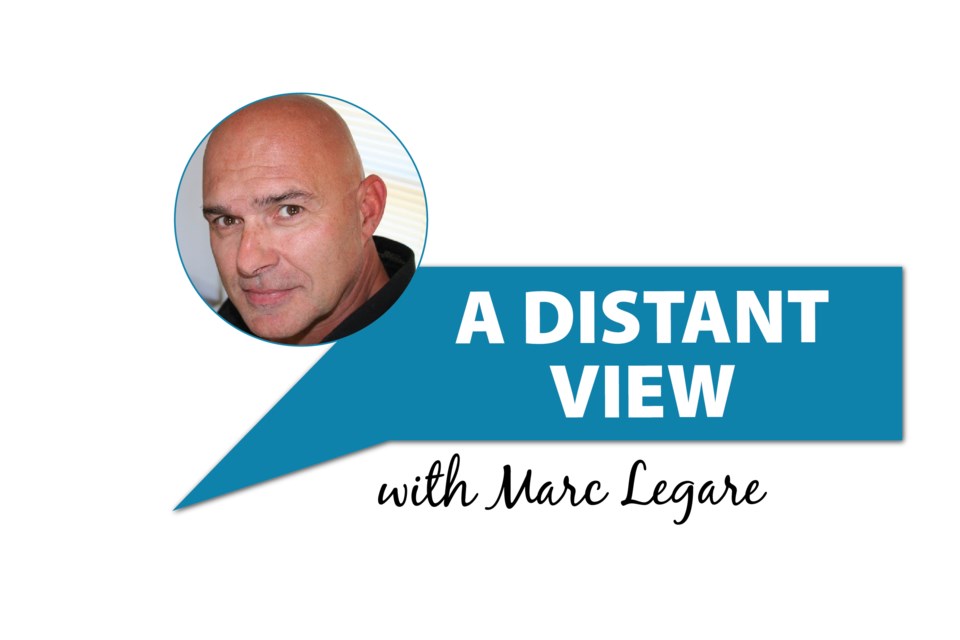Marc Legare is a philosopher and motorcycle adventurist.
He has travelled extensively, worked and lived in Australia, US, and across Canada.
He has a varied working career including: Firefighter, Lawyer, Navy, Motorcycle Importer, plus others.
He chose to return to southern Saskatchewan because of his family's deep roots here.
There are a great deal of one-liner statements we have adopted without reflection on their validity. These statements are so ingrained in our psyche that masses of people are offended when you call them into question. One such blanketly accepted punch line on the do-not-dispute list is "safety first."
That superlative is plastered on posters, defended loudly by politicians of every stripe, and supported by virtually every group, organization, and government. At least by those who want to survive in our world of viciously attacking public opinion courts.
Are we over protecting ourselves during simple day-to-day living? The fact is, safety is not everything there is in life and other considerations have at least some validity. More succinctly, living a full life carries with it a certain amount of risk.
The real price for too much safety is the cost of restricting joys, learning opportunities, and life experiences to the point where activities become sanitized beyond reason. So much so, they become droll and often times not worth doing because of excessive safety restrictions.
There are countless people of advanced age who reminisce of their youth with great fondness and smile at the freedoms they enjoyed. Most of them smirk with pleasure when remembering mom shouting, "get outside and play and don't come back till supper." One cannot help but think they are smiling at the mischief opportunities they had. Today, however, that statement would be met with allegations of child abuse due to lack of supervision.
More telling, is how the elderly lament for the modern child who is excessively wrapped, cautioned, controlled, and guided all in the name of protection. Few, if any, old-timers would agree that the modern child lives a better or healthier life than they did. On the contrary, they feel sorry for them.
Our children are so protected that when suggesting an activity for them it must first pass a minefield of well-meaning but overly extensive safety tests, checks, and Draconian safeguards. Sadly, that safety mindset considers only the risks and puts little to no emphasis on the quality of experiences and educational value of the odd knee scrape.
No one is suggesting that we allow our children to go racing off to meet their doom and be allowed to do any activity their irresponsible little minds dream up. However, like all aspects of a well lived life, a middle-ground approach is best. Is not a balanced view of risk vs. reward at least worthy of consideration? In other words, "safe living" with an equal emphasis on the "living" part. Shouldn't our children be allowed to grow up being children? Besides, what are we teaching our offspring by encouraging them to be scared of everything?
It is not only the young who suffer from the overbaked "safety" mindset we have adopted. So too, do the elderly. In speaking to several nursing home 'inmates' during the pandemic, many said they did not want to live in captivity and would rather have chanced getting sick than exist in a world without seeing their families. Is that not a wise willingness to accept some risk for living well? Yet our society imposed the opposite and placed no value whatsoever on quality of life. Somewhere along the way we have disregarded the inherent belief that living well is as important, or even more important, than being safe at every turn. Our denying the elderly a visit from their grandchildren is a glaring example of this.
There is no way of proving where the line between safety and accepting a little exposure should be drawn. However, a good argument can be made that we have overdone it with "safety first" and we have moved to a "safety only" ideology.
A line that sums it up was spoken by William Shedd, "A ship is safe in harbor, but that is not what ships are for."
The views and opinions expressed in this article are those of the author, and do not necessarily reflect the position of this publication.



